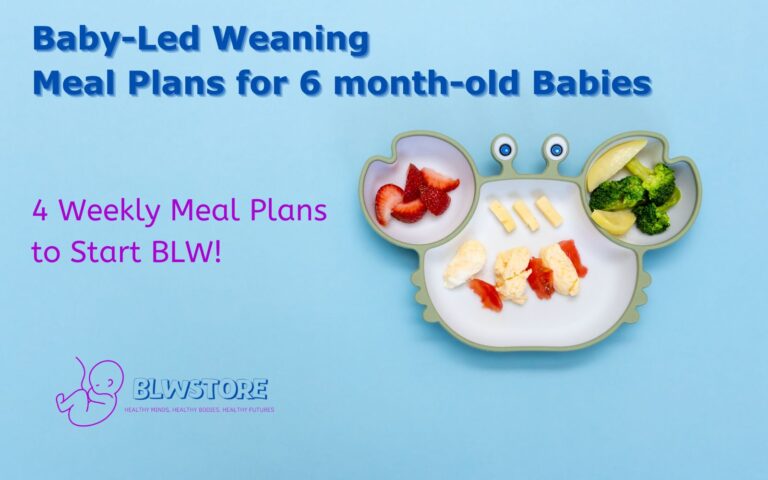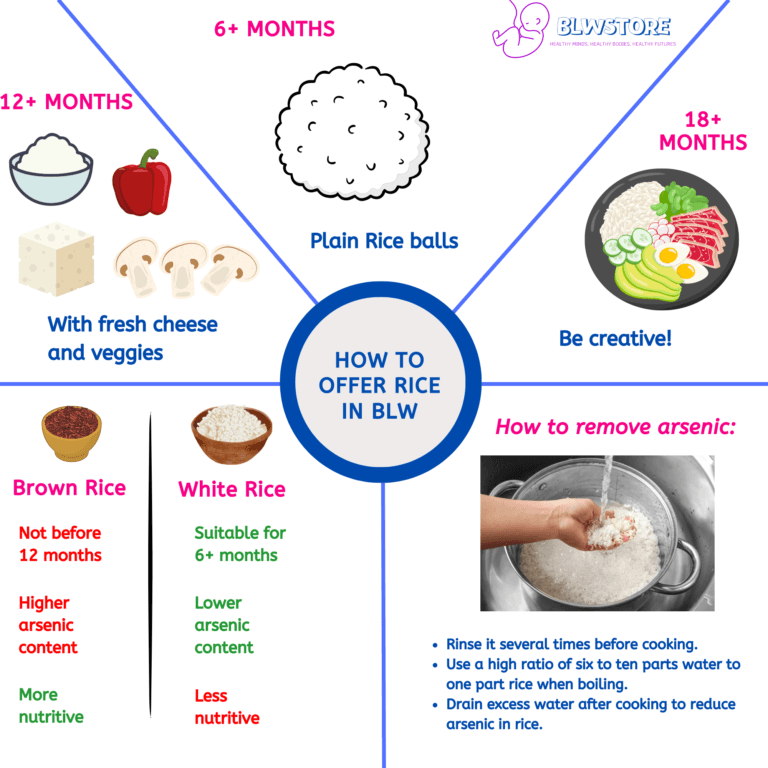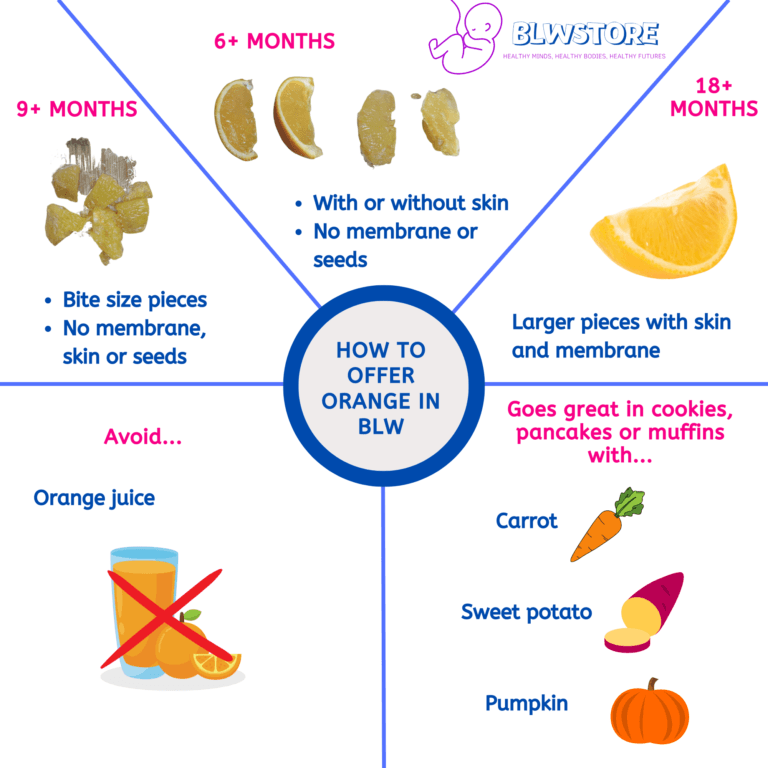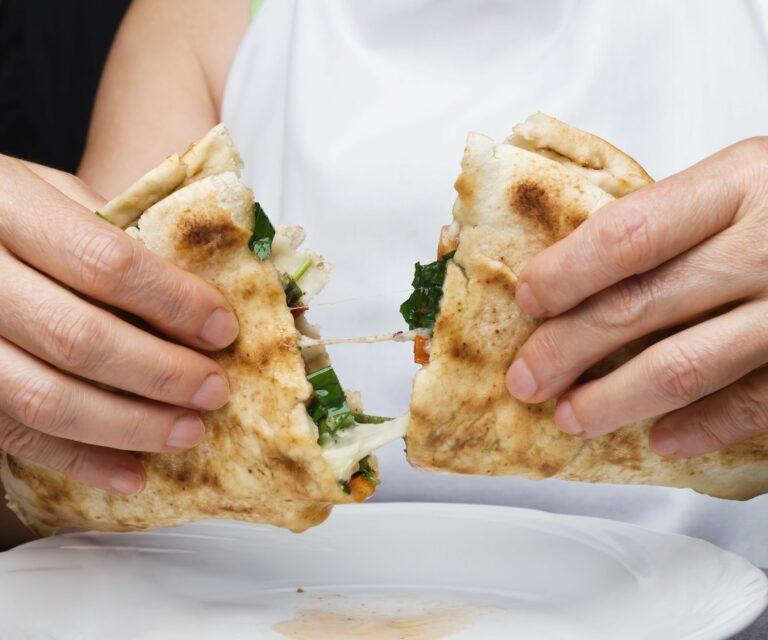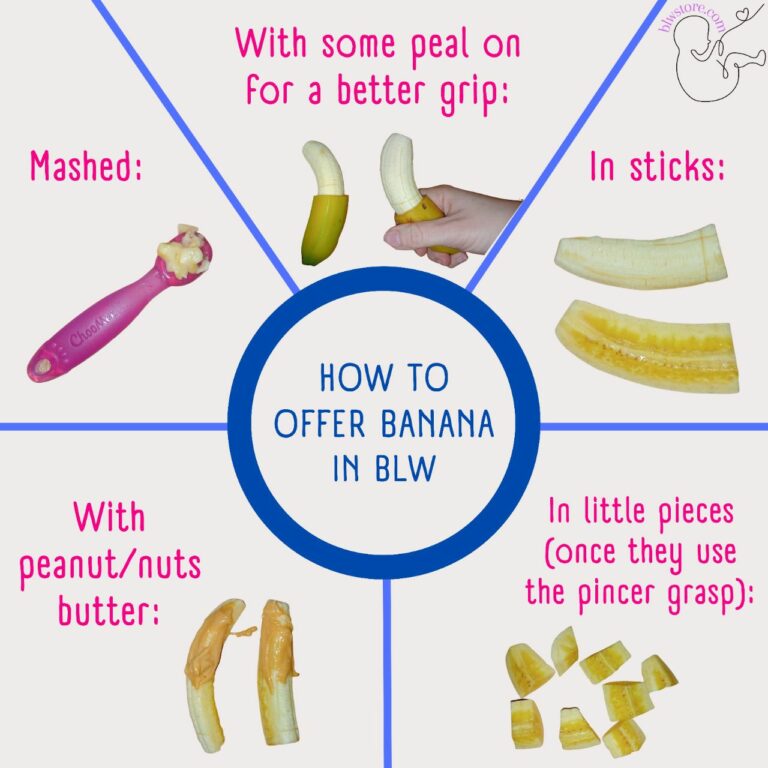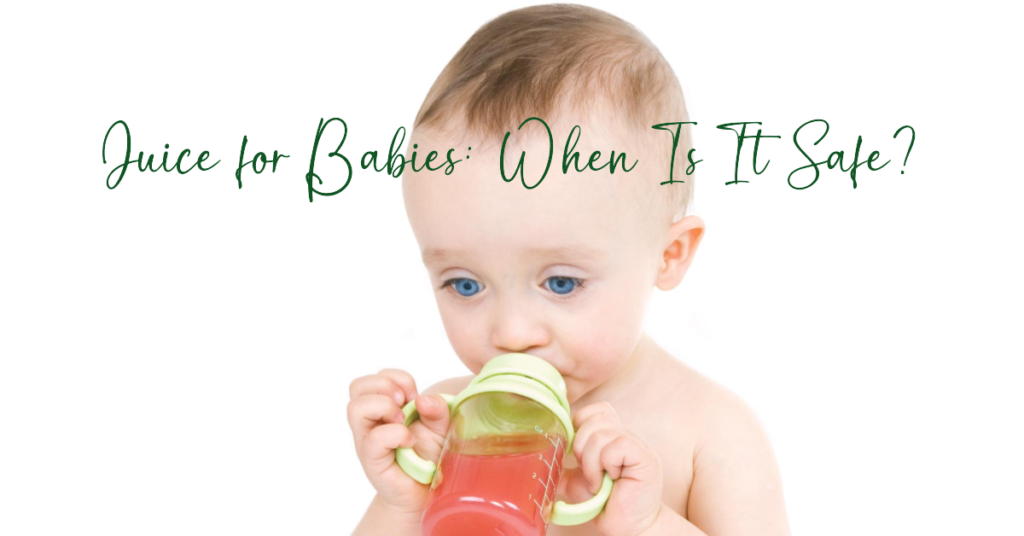
As a new parent, it is challenging to navigate through the many questions that arise regarding your baby’s health and well-being. One common question is when babies can start drinking juice. Juice is a popular beverage among children, but is it healthy? Spoiler alert: not really.
The AAP, or American Academy of Pediatrics recommends that infants under twelve months old should not be given any juice, unless there is a strong clinical basis for it in the management of constipation. This change in recommendation is due to concerns about increasing obesity rates, risks for dental caries, and the lack of nutritional benefits
Breast milk or infant formula is all babies need until the 6-month mark. Between 6 and 12 months, solids can be introduced, but juice does not provide enough nutrition to be a priority, and it should never be, to be honest.
Key Information On Babies and Juice
When it comes to giving juice to babies, there are some basics that every parent should understand. Here are a few essential things to keep in mind:
- Infants under twelve months old should not be given juice. At this age, babies need only breast milk or formula to meet their nutritional needs, along with some solid foods.
- After twelve months, babies may try small amounts of 100% fruit juice, but it should be limited to no more than 4 ounces per day. Juice is unnecessary for a baby’s diet and should not replace breast milk or formula.
- Juice should not be a substitute for water, which should be the second source of hydration for babies and young children, the first being breast milk or formula.
- Juice should always be served in a cup, not a bottle, to help prevent tooth decay. Sippy cups are a good option for toddlers, but once a child can drink from an open cup, that is the best choice.
- It’s important to choose 100% fruit juice rather than juice drinks or fruit-flavored beverages that often contain added sugars. Diluting juice with water can also help reduce the sugar content.
- Keep in mind that solid foods should always be a priority over juice. Babies should not be given juice before trying solid foods and developing healthy eating habits.
Is Juice Healthy for Babies and Toddlers? | Not Really
Here are some of the critical nutritional concerns, potential risks, and concerns about sugars and sweeteners to keep in mind.
Nutritional Concerns
While fruit juice does contain some vitamins and nutrients, it is generally not as nutritionally valuable as fresh fruits and vegetables. Juice lacks dietary fiber, protein, and other important nutrients babies need for healthy growth and development.
Additionally, juice is often high in calories (and even worse, liquid calories) and low in nutritional value, contributing to poor nutrition and obesity.
Potential Risks
One of the biggest concerns with giving juice to babies is the risk of tooth decay. Juice contains natural sugars that can lead to dental problems, especially if babies drink it frequently or in large amounts. In addition to tooth decay, juice can also cause diarrhea, constipation, and dehydration in some babies.
Another potential risk of juice is exposure to lead. Some juices, especially those made from concentrate or imported from other countries, may contain trace amounts of lead, which can be harmful to babies and young children.
Concerns About Sugars and Sweeteners
Many juices, especially those marketed to children, contain added sugars or sweeteners. These can contribute to poor nutrition, obesity, and other health problems if consumed excessively. It is important to read the label carefully and choose juices that are free or low in added sugars and sweeteners.
Always choose 100% fruit juice and dilute it with water to reduce the sugar content. Forget about honey and other sweeteners until your baby is at least one year old, but we would recommend 24+ months.
What Juice is the Best?
Always select 100% fruit juice that is pasteurized. Avoid giving your baby juice that contains added sugars, flavors, or preservatives. Some good options for babies include apple, pear, and prune juice, as they are low acidity and less likely to cause digestive issues.
| Juice | Nutritional Benefits | Fiber Content |
|---|---|---|
| Stewed Boiled Apple Juice | Good source of Vitamin C and potassium | Low |
| Orange Juice (raw) | Rich in Vitamin C, potassium, and folate. If fortified with Vitamin D, it can also be a good source of this nutrient | Low |
| Boiled Carrot Juice | Good source of Vitamin A, Vitamin C, potassium, and fiber | High |
| Boiled Pear Juice | Good source of Vitamin C and potassium | Low |
| Prune Juice | Good source of fiber and potassium, helpful for toddlers who are constipated | High |
| Coconut Water | Hydrating and contains electrolytes | Low |
| Vegetable Juice (e.g., Carrots and Oranges) | Packed with vitamins and nutrients | Varies |
Are There Any Alternatives to Juice?
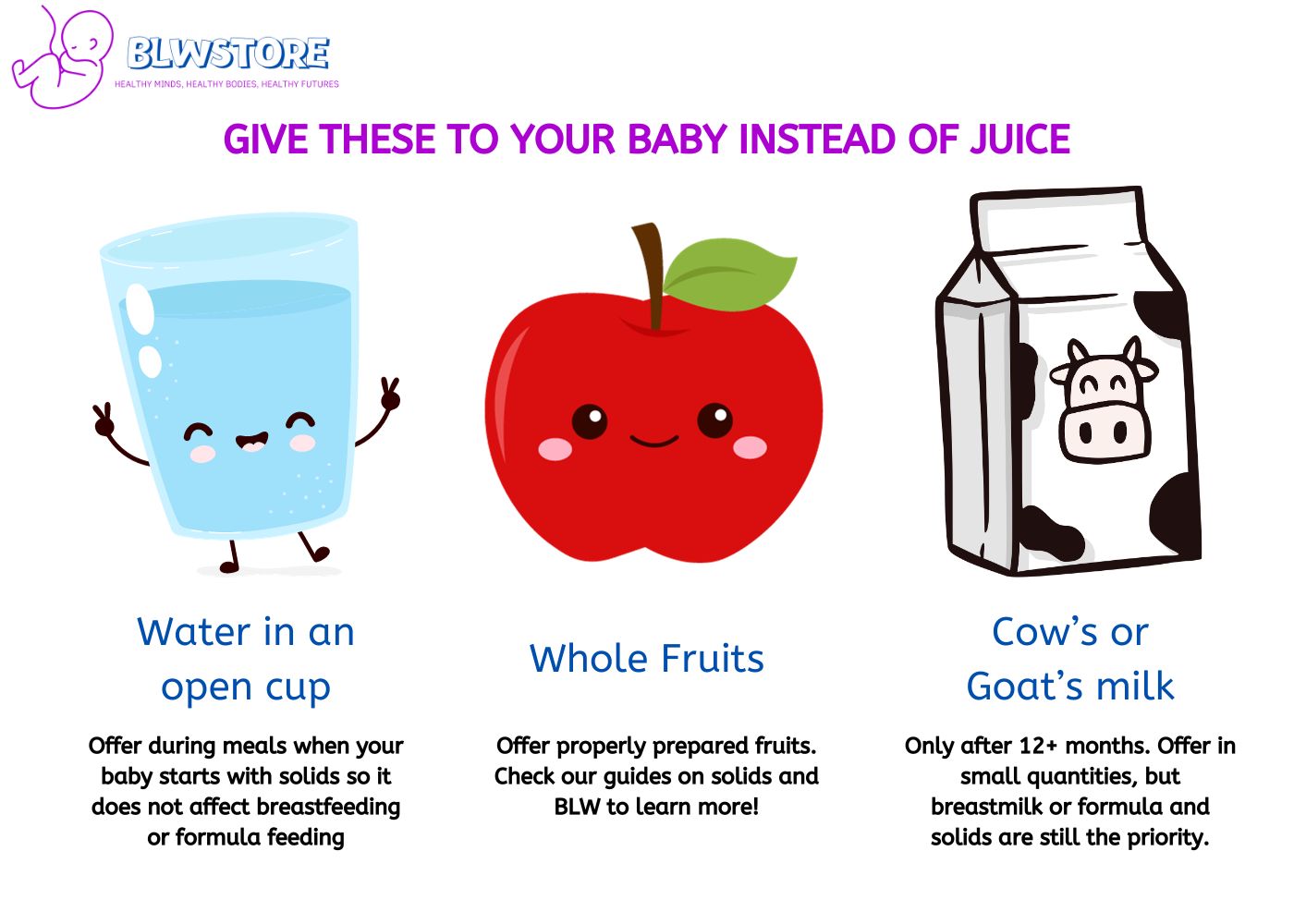
1. Whole Fruit
Instead of giving your baby fruit juice, offer them whole fruit instead. Whole fruit contains more fiber than juice, which can help keep your baby feeling full and satisfied. Follow the Baby-Led Weaning guidelines to introduce foods.
2. Milk
Milk is another excellent option for babies and toddlers. Breast milk or formula should be the primary source of nutrition for infants until they are at least twelve months old, but after that, you can start introducing whole cow’s milk or plant-based milk like almond or soy.
3. Water
Water may seem like a great alternative to juice. Still, infants do not need anything other than breast milk or formula, and water can interfere with their ability to absorb nutrients. Once your baby is old enough to start trying new foods (6+ months), you can offer them small amounts of water in a cup, mainly in the summer.
Frequently Asked Questions
when can I give my baby juice for constipation?
If it’s before your baby is 12 months old, always consult with a pediatrician. If your baby is constipated and over one month old, then you may give them small amounts of apple, pear, or prune juice (1 ounce (30mL) per day.
What juices can a 6-month-old drink?
None. At 6 months, babies should only be consuming breast milk or formula. It is important to wait until they are at least 1 year old before introducing juice.
When can I give my baby diluted juice?
At 12 months of age. If you give your baby juice after they turn 1, it is recommended to dilute it with water to reduce the sugar content. Start with a 1:1 ratio of juice to water and gradually increase the amount of water over time.
We’re Maria and Alberto, a married couple and educators who are nutrition enthusiasts. Even before we had kids, we were already crazy about nutrition.
We’d read scientific articles, watch videos from nutritionists, and spend hours listening to nutrition podcasts.
Today, we continue doing this, but in a different way, as we’ve learned to sift through the noise and trends. Nutrition, like any other field of knowledge, the more you read and learn, the more you develop a comprehensive understanding of reality, and that’s what has happened to us.
Before having our first child, we focused on learning everything we could about child nutrition, using the same techniques we had already employed, backed by our extensive knowledge in nutrition.
Our mission is to help other parents with their children’s nutrition, to help them become the best versions of themselves.
If we are what we eat and drink, which is absolutely true, let’s do it right!


